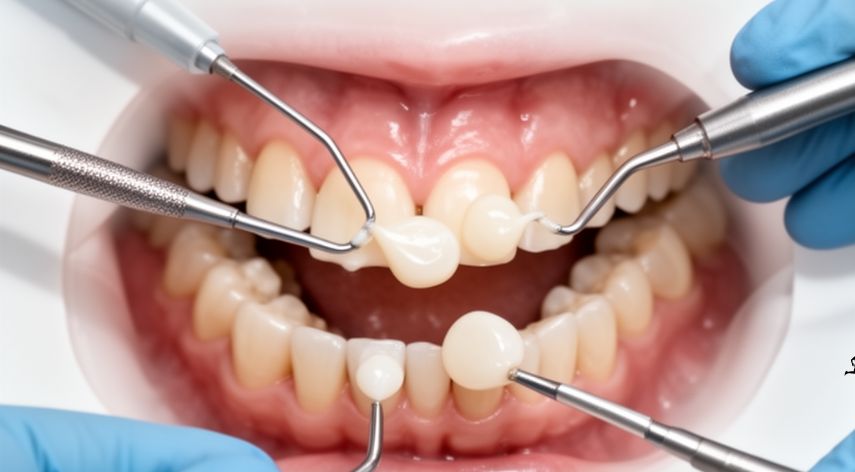Healthy Eating – Everything You Should Know
There are three types of foods. Some are healthy, some are unhealthy, and others just fill your stomach.
The foods you eat are directly linked to your health. Healthy foods can improve your health and unhealthy foods will not benefit you but they can even harm your health.
Eating a healthy diet is very simple. Fresh vegetables, fresh fruits, and meat, all are good for the health and part of a healthy diet. But there is soo much confusion due to the bundle of food products in the market and plenty of content available on the internet to read.
Some food products are healthy and good for health such as bone broth. But some food products are processed and not good for health.
In this article, we will discuss healthy foods and healthy eating.
Importance of Healthy Eating:
According to various researches, it is proved that an unhealthy diet is not good for your health. It can make your body more prone to various health disorders including fatal diseases.
A healthy diet can reduce the risk of certain cancers and heart disease. A good diet can improve the overall functionality of the body. A healthy diet can keep you physically and mentally fit. This will improve your mental and physical performance. Healthy foods also protect your organs and cells from damage and free radicals.
Eating healthy foods and doing exercise regularly is a great combination to live a long and healthy life.
Calorie and Energy:
Calorie plays an important role in weight loss and weight gain. If you burn more calories then you consume, you will lose weight. If you burn fewer calories then you burn, this will result in weight gain.
For weight loss, you must restrict your calories and try to burn as much as you could. For weight gain, eat more calories and burn less.
There are two types of nutrients that you must consume to stay healthy and fit. Macronutrients and micronutrients.
What are Macronutrients?
Protein, fiber, and carbohydrates are macronutrients that are needed in large amounts for various functions in the body. A fewer amount of these nutrients may have adverse effects on your physical and mental performance.
Here are some foods that contain these macronutrients.
- Carbs: Pasta, legumes, dairy products, and all other starchy foods contain carbohydrates.
- Protein: Meat, fish, tofu, eggs, beef broth, and some other foods contain a good amount of protein.
- Fats: Nuts, butter, and fatty fish are the main sources of fats. But some other foods also contain fats such as oils.
How many macronutrients should every person consume it depends on various factors. Physical activity, age, gender, and daily routine are some of them. If your daily routine is tough then you may need more macronutrients. If you are too old, you may need fewer macronutrients.
What are Micronutrients:
Vitamins and minerals are called micronutrients. Minerals and vitamins are required in smaller doses. This is why they are known as micronutrients.
Here are some macronutrients that are good for health and required by the body.
- Potassium: Potassium is an important mineral and it plays a vital role for your body to perform various functions. It controls blood pressure.
- Magnesium: magnesium improves muscle contraction, and improves the health of the nervous system.
- Vitamins: All vitamins are crucial. Vitamin A is good for the health of organs. Vitamin D is important for bones.
- Iron: Iron is an important mineral. It is required to carry oxygen in the blood. Iron also improves the functionality of the brain by delivering a good amount of oxygen to the brain cells. It improves the quality of white blood cells and strengthens the immune system.
- Calcium: Dairy products such as milk and cheese contain a good amount of calcium. Some other foods also contain calcium. Calcium is important for the good health of muscles, bones, and some organs such as heart.
In order to get good health, you must get all the essential vitamins, minerals, and nutrients. Both micronutrients and macronutrients are crucial for optimum health.
The daily requirement of macronutrient and micronutrient differs for every individual. It depends on various factors. Age, physical activity, daily routine, and weather are some of them.
You can get all nutrients from both types of food sources. Plants and animals. Relying on both food sources for all essential nutrients is a good choice. If you consume both food sources, you may not need any supplement for any micro or macronutrient.
Whole Foods vs Processed Foods:
Whole foods are rich in nutrients and good for health. Processed foods contain lesser amount of nutrients than whole foods. Some processed foods also contain added sugars and artificial flavors to increase the taste that makes them unhealthy.
Conclusion:
Healthy eating may prevent various health disorders and give you a long and healthy life. Unhealthy foods can increase the risk of various chronic and fatal diseases.
Recommended For You
In the heart of the City of London, maintaining excellent oral health is essential for busy professionals and residents alike.
If you’re searching for “composite bonding near me” in London, it’s important to know what truly sets a clinic apart.
Cancer affecting the urinary tract and male reproductive organs requires specialized care. This is where uro-oncology plays a crucial role.
Browse by Category
- Travel
- Technology & Gadgets
- Sports & Games
- Software
- Shopping
- Reviews
- Real Estate
- Numerology
- News
- Make Money
- Lifestyle
- Law
- Home Improvement
- Health
- Gardening
- Games
- Finance
- Entertainment
- Education
- Digital Marketing
- Diet and Fitness
- Dating
- Construction
- Celebrity
- Career and Jobs
- Business
- blog
- Angel Number



